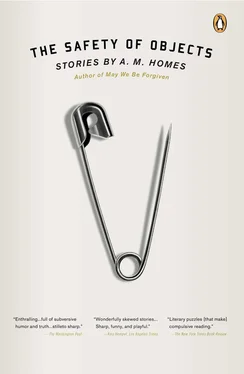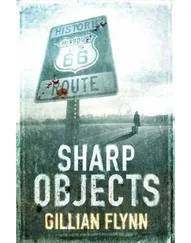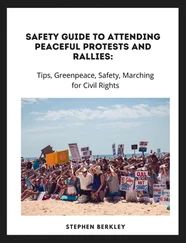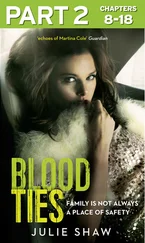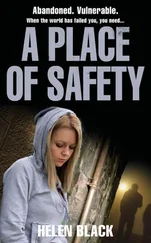A. M. Homes
Safety of Objects: Stories
Praise for The Safety of Objects: Stories by A. M. Homes
“Sharp, funny, and playful… Homes is confident and consistent in her odd departures from life as we know it, sustaining credibility by getting details right. A fully engaged imagination [is] at work — and play.”
— Amy Hempel, The Los Angeles Times
“Set in a world filled with edges to topple from, [ The Safety of Objects ] is permeated by the bizarre…. The unexpected emerges from the story itself, startling and unexpectedly right.”
— The Cleveland Plain Dealer
“A. M. Homes finds mystery without special effects or exotic underbellies. We get a tour through the action adventure of everyday fantasies. Many of Homes’s characters lead two lives, one on God’s most conventional little acre, one in some alternate universe.”
— Mirabella
“A collection of deft, off-center stories about bizarre situations and the people unwittingly thrust into them… The Safety of Objects takes us on a Twilight Zone tour of everyday life. After it’s over, the reader may have lost some sense of boundaries, but that’s all to the good. That’s what keeps life, and literature, fresh.”
— Detroit Free Press
“Homes’s surprises proceed out of a stranger, surrealistic fictional world…. One way or another, there’s no place like Homes and her stories.”
— San Francisco Examiner
“Homes’s vision may be relentlessly grim, but it’s undeniably vivid and uncomfortingly familiar…. [H]er singular voice has deftly chronicled a suburban collage of marriage, mortgages and, lurking just beneath the veneer, madness.”
— Rocky Mountain News
“A. M. Homes’s provocative and funny and sometimes very sad takes on contemporary suburban life impressed me enormously. The more bizarre things get, the more impressed one is by A. M. Homes’s skills as a realist, a portraitist of contemporary life at its more perverse.”
— David Leavitt
“These stories are remarkable. They are awesomely well written. In the sense of arousing fear and wonder in the reader they entertain, but what they principally bring us is a sense of recognition…. Here are all the things that even today, even in our frank outspoken times, we don’t talk about. We think of them punishingly in sleepless nights.”
— Ruth Rendell
“An unnerving glimpse through the windows of other people’s lives. A. M. Homes is a provocative and eloquent writer, and her vision of the way we live now is anything but safe.”
— Meg Wolitzer
“A. M. Homes’s fresh and determined young voice emerges with vigor in this engaging collection of stories. You know the world will hear more of her.”
— Thomas Keneally
“A. M. Homes has a real gift for using a single, sharp tool to make (or suggest, perhaps) an astute general observation. With little she makes much, a trait I much admire in these days of profuse and prolix novels.”
— Doris Grumbach
The Safety of Objects: Stories
Elaine takes the boys to Florida and drops them off like they’re dry cleaning.
“See you in ten days,” she says as they wave good-bye in the American terminal. “Be nice!”
She kisses her mother-in-law’s cheek and, feeling the rough skin against her own, thinks of this woman literally as her husband’s genetic map, down to the beard.
“Go,” her mother-in-law says, pushing her toward the gate.
It is the first time she’s left her children like that. She gets back onto the plane thinking there’s something wrong with her, that she should have a better reason or a better vacation plan, Europe not Westchester.
Paul is waiting at the airport. He’s been there all day. After dropping them off this morning, he took over the west end of the lounge and spent the day there working. She knows because he paged her at Miami International to remind her to bring oranges home.
He seems younger than she remembers. His eyes are glowing and he looks a little bit like Charlie Manson did before he let himself go. Elaine is sure he’s been smoking dope again. She imagines Paul locking himself in an airport bathroom stall with his smokeless pipe and some guy who got bumped off a flight to L.A.
She wonders why he doesn’t find it strange, pressing himself into a tiny metal cabinet with a total stranger. He once told her that whenever he got stoned in a bathroom with another guy it gave him a hard-on, and he was never sure if it was the dope or the other man.
She can’t believe that in all these years he’s never been busted. She used to wish it would happen; she thought it would straighten him out.
“Let’s go home,” Elaine says.
“We don’t have to go home, we can go anywhere. We can… ” He winks at her.
“I’m tired,” Elaine says.
They drive home silently. The car is so new that it doesn’t make any noises. Paul pulls carefully into the driveway. Branches from trees surrounding the house scrape across the car. Elaine thinks of campfire horror stories about men with hooks for arms and women buried alive with long fingernails poking through the dirt.
“Got to cut those branches back,” Paul says and then they are silent.
Paul follows her up the steps, talking about the steps. “If we’re going to paint them, we should go ahead and do it before it snows.”
“Maybe tomorrow,” she says, but honestly she doesn’t want to do anything else to the house. She’s given up on it. It’s too much work.
She feels like she’s been having an extramarital relationship with their home. It isn’t even an affair, an affair sounds too nice, too good. As far as she’s concerned a house should be like a self-cleaning oven; it should take care of itself.
The last time she was happy with the house was the day before they moved in, when the floors had just been done, when it was big and empty, and they hadn’t paid for it yet.
Elaine pushes open the front door.
“I wish you’d remember to lock the door,” she says. In the city you never forgot to lock the door.”
It is dark inside. Elaine stands in the front hall, trying to remember where the light switch is. In the six months they’ve lived there, she and Paul have never been alone in the house. It’s nice, she thinks, still feeling the wall for the switch. She turns on all the lights and begins picking up things, Daniel’s clothing, Sammy’s toys. She straightens the pillows on the sofa and goes upstairs to take a bath. The phone rings and Paul answers it. She falls asleep hearing the sound of voices softly talking, thinking Paul is a good father; he is down the hall, reading a story to Sammy.
As usual they both wake between six-thirty and seven, listening for the children. They are alone together, trapped in their bed. They don’t have to get up. They don’t have to go anywhere. They are on vacation.
Eventually, between seven-thirty and quarter-to-eight, when there is no more getting around it, she looks at him. He is balding. She thinks she can actually see his hairline receding, follicle by follicle. He has told her that he can feel it. He says his whole head feels different; it tingles, it gets chilled easily, it just isn’t the way it used to be. She thinks about herself. Her face is caving in. She has circles and bags and all kinds of things around her eyes. Last week she spent forty dollars on lotion to cover it all up.
When she comes downstairs, he has already eaten breakfast and lunch.
“Maybe we should go to a movie later?” he says.
Читать дальше
